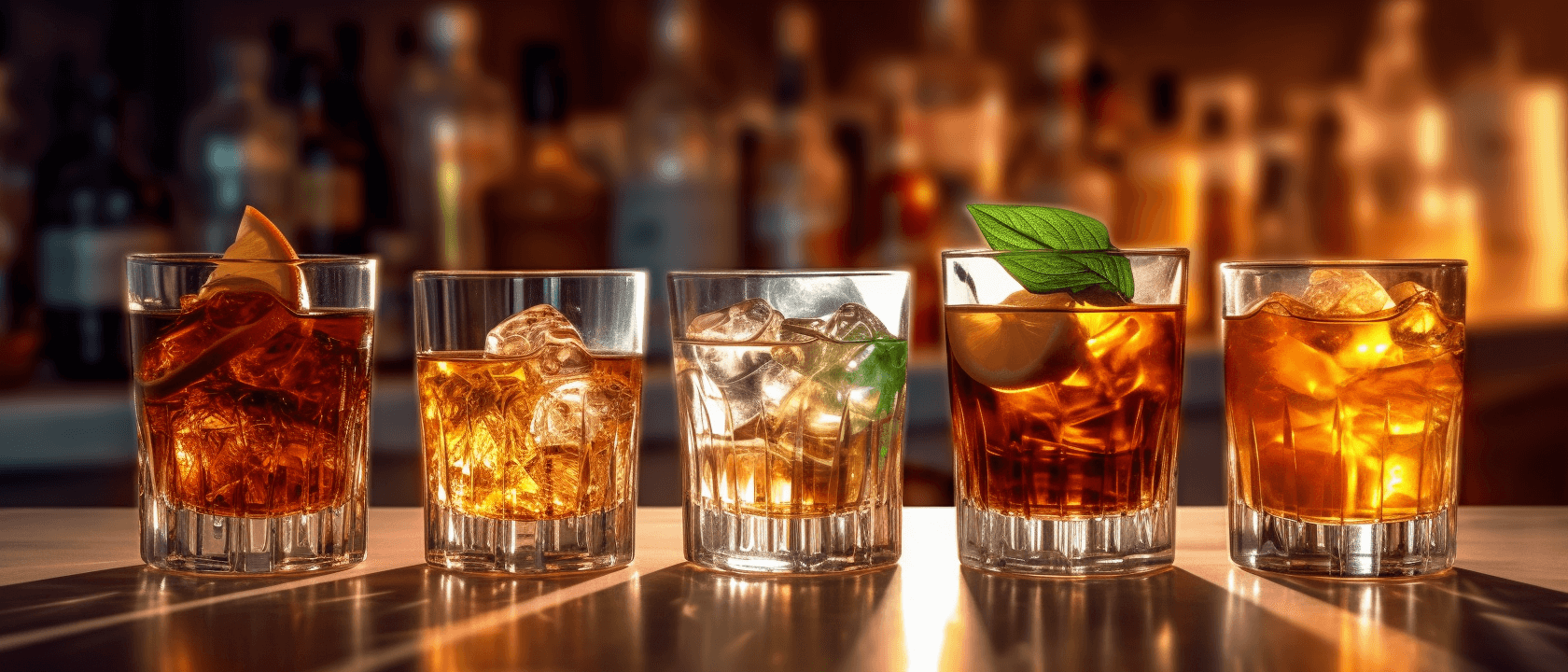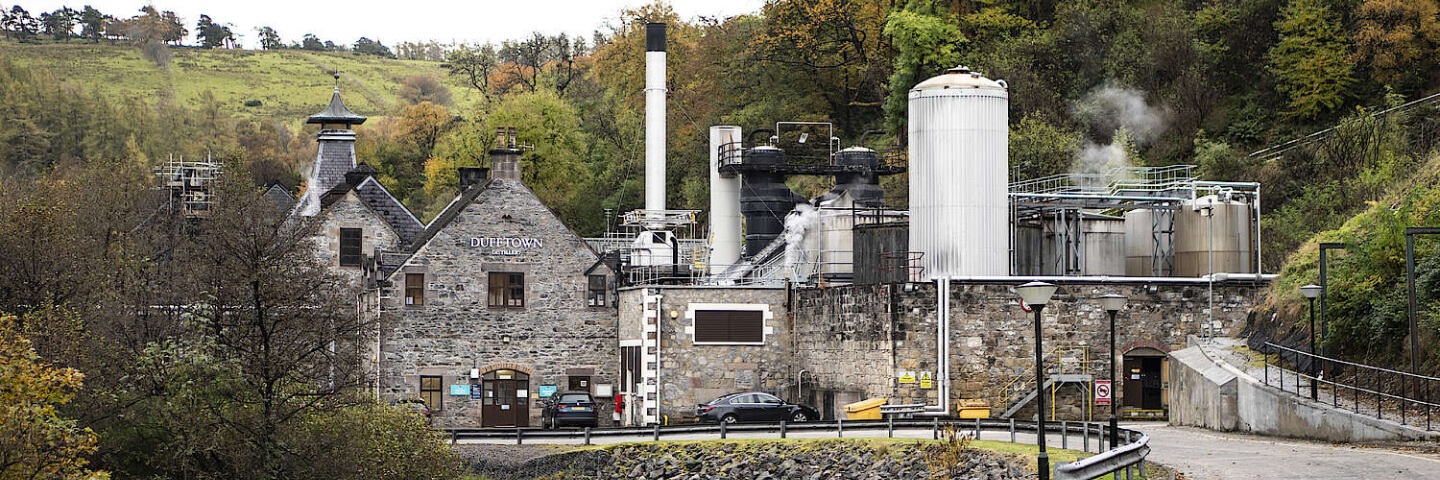It would be reckless to publish an article about the health benefits of drinking whisky, without first raising the health issues alcohol can cause when consumed in excess; high blood pressure, heart & liver disease, alcohol dependence, as well as social & mental issues.
If you're having trouble with alcohol, please call 1800 250 015 or speak to your GP.
The word “Whisky” comes from the Gaelic word “Uisge Beatha,” which means “water of life.” That phonetically became “usky,” and eventually was pronounced as “whisky”. People believed that whisky was a magical elixir, that had healing properties – it could clean wounds, numb pain, and act as liquid courage.
In 2026, whisky is no less magical than before, here are just a few of the wonderful health benefits of drinking whisky:
1. Avoid weight gain
Whisky is relatively low in calories compared to a can of beer (154 calories) or a small glass of red wine (125 calories) – a 30ml serve of whisky contains only 70 calories.
It might not help you lose weight, but if you make a point to avoid the sugary mixers it will go a long way in helping curb the calorie intake if you’re having a few drinks.
2. The perfect drink for diabetics
Whisky is low in calories primarily because it has almost no carbohydrates. Making it a great drink choice for diabetics that have to manage their carb and sugar intake.
The caveat here is that you skip the sugary mixers such as coke. So swap your bourbon and coke for a scotch and soda, or opt to drink your whisky neat.
3. Whisky can help digestion
Whisky makes for a great digestif to have after a large meal – aiding indigestion. It helps release muscle tension, particularly those of the stomach working hard after a heavy meal.
4. Soothe a sore throat with whisky
The alcohol in the whisky acts as an antiseptic and numbing agent on an aching throat – gargle it, sip it or both.
Try adding a dash whisky to honey, which can help by creating a thick coating that will help the healing effects last longer.
5. Clean a cut or scrape
If you’re in a pinch (ie when you’re out camping) and need an antiseptic to clean a cut or graze, the high alcohol content in whisky makes it a possible alternative to medical antiseptic.
Alcohol has been used for centuries to clean wounds. But if given the choice, I’d opt for the betadine and save the whisky for drinking.
6. Combat stress and relax
I’ll start by stating again that whisky is best consumed in moderation, and shouldn’t be frequently used to cope with stress – you might find yourself developing an alcohol dependency. Instead, try some light exercise to get the endorphins running.
However, it is well known that alcohol can help you relax thanks to its sedative and anxiolytic effect. Helping to relieve anxiety and stress, relax the muscles and generally relax the body.
It’s also worth mentioning that socialising and spending time with friends can be a great way to destress. So if sharing a dram of whisky and talking through life’s mysteries helps you do that, then all I’ll say is cheers!
7. Improve financial health
Investing in rare whisky can be a lucrative business, some people come off incredibly lucky by purchasing bottles of single barrel whisky that later go on to win awards, which then rapidly increase the value of the bottle. But more often, whiskies with a high price are tough to resell, and the quality of whisky doesnt improve over time in the bottle (unlike red wine) so there’s no real benefit to holding on to it.
My advice is to enjoy the whisky you buy, don’t hold onto it with the hopes it’ll someday increase in value – but each to their own.
Where whisky can help financially is when compared to other equally priced beverages. A nice bottle of whisky such as Talisker 10yo sets you back ~$120 and goes a lot further than a comparably priced bottle of wine like Penfolds St Henri Shiraz. This is one of the reasons that whisky makes a great gift.
At the other end of the spectrum, a more affordable bottle of whisky like Jonnie Walker Red Label is more economical per standard drink ($1.70) than a bottle of $20 wine ($2.22). This can make whisky a good alternative for a mid-week drink at home, depending on what you’re drinking.
This is where the article pivots more onto the “science” of whisky health benefits. Where possible, I’ve included references to the research.
Take each claim with a grain of salt. 👀
8. Antioxidants in whisky
Research shows that Whisky can contain significant numbers of antioxidants when aged in wooden barrels. These same antioxidants are found in red wine, but not in unaged new make spirit.
In general antioxidants, can help protect the body from certain diseases, and support the health of cells in your body, some of which cannot regenerate themselves.
The points below explore the benefits of antioxidants found in whisky.
9. Antioxidants – decreased risk of heart disease
A study published in the European Journal of Clinical Nutrition in 1998 showed that healthy males who consumed 100ml of whisky displayed a significant increase in the total phenol content and antioxidant capacity within just 30 mins.
Increased phenol and antioxidant intake has been seen to decrease the risk of coronary heart disease.
This study was funded by the Scottish Office of Agriculture and the Scotch Whisky Research Institute, so beware of the potential bias here.
Duthie, G., Pedersen, M., Gardner, P. et al. The effect of whisky and wine consumption on total phenol content and antioxidant capacity of plasma from healthy volunteers. Eur J Clin Nutr 52, 733–736 (1998). https://doi.org/10.1038/sj.ejcn.1600635
10. Antioxidants – ellagic acid combats the spread of cancer
One of the antioxidants found in whisky is called ellagic acid. Which not only reduces the oxidation of chemicals in your body, but also has been seen to reduce the risk of potential cancer cells spreading around the body.
Experiments have revealed that Ellagic Acid elicits anticarcinogenic effects by inhibiting tumor cell proliferation, inducing apoptosis, breaking DNA binding to carcinogens, blocking virus infection, and disturbing inflammation, angiogenesis, and drug-resistance processes required for tumor growth and metastasis.
Zhang HM, Zhao L, Li H, Xu H, Chen WW, Tao L. Research progress on the anticarcinogenic actions and mechanisms of ellagic acid. Cancer Biol Med. 2014;11(2):92-100. doi:10.7497/j.issn.2095-3941.2014.02.004
11. Reduced risk of dementia in old adults
A study in 2003 among 5888 adults aged 65 years and older showed that drinking small amounts of alcohol reduced the chance of developing of some forms of dementia, such as Alzheimer’s disease.
Compared with non-drinkers, consumption of 1 to 6 drinks weekly is associated with a lower risk of incident dementia among older adults.
Mukamal KJ, Kuller LH, Fitzpatrick AL, Longstreth WT Jr, Mittleman MA, Siscovick DS. Prospective study of alcohol consumption and risk of dementia in older adults. JAMA. 2003;289(11):1405-1413. doi:10.1001/jama.289.11.1405











